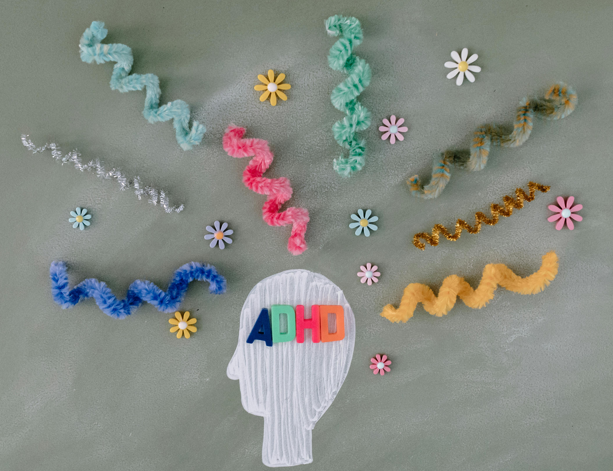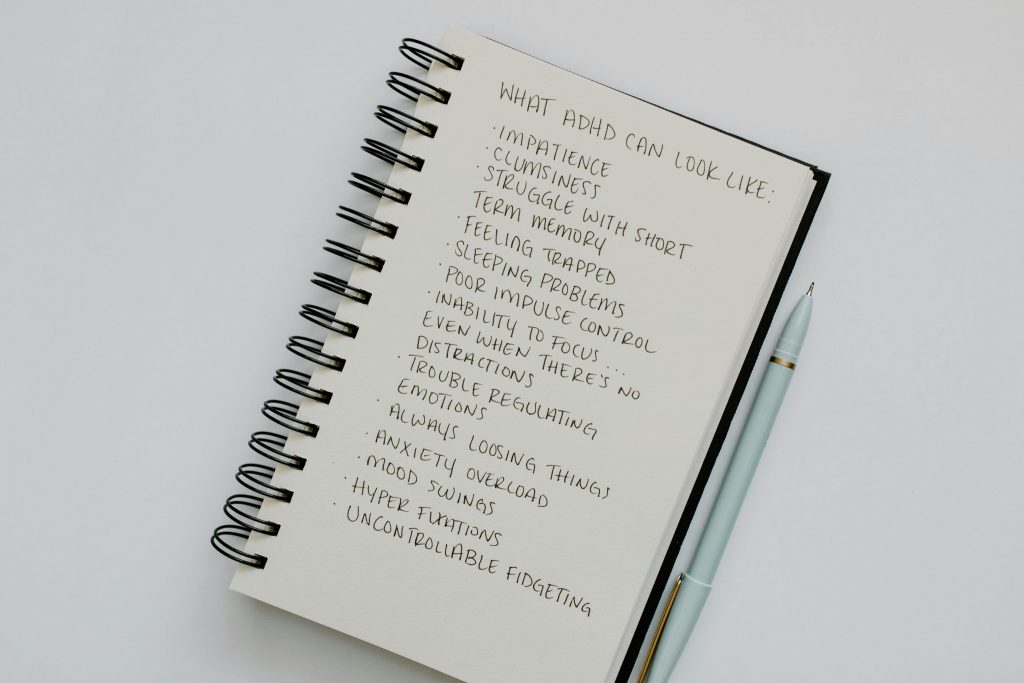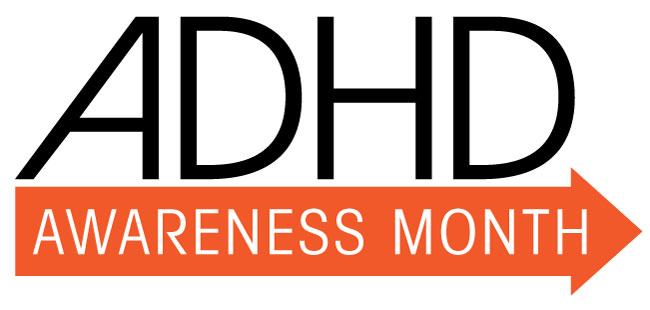October is the designated ADHD Awareness (Empowerment!) Month. But what is ADHD?
ADHD (attention deficit hyperactivity disorder) is a neurological disorder that impacts the parts of the brain that help us plan, focus on, and execute tasks. ADHD symptoms vary by sub-type — inattentive, hyperactive, or combined — and are often more difficult to diagnose in girls and adults (ADDitude Magazine).
This yearly awareness campaign aims to spread facts and burst some myths regarding ADHD. You can explore some common questions and answers on the official website. Whether you have a formal diagnosis, or are self-diagnosed, are currently curious and investigating, or suspect you or someone you know may have ADHD, there are ways in which you can learn more about ADHD and get the help and resources you need.
ADHD is known to be genetic (runs in families), and there is no cure. However, getting to know yourself, asking for accommodations and support, and in some cases accessing medication, can make a huge difference. More free information is available at The Brain Charity and at the ADHD Foundation / The Neurodiversity Charity. You can also explore the NHS designated page here, but keep on reading below to find out more!
ADHD symptoms can vary, so not everyone will struggle with the same things or with the same intensity. Being ADHD means experiencing a set of difficulties mostly with executive dysfunction, attention, impulsivity and emotional issues, and sometimes hyperactivity too. But it also comes with buckets of perks, such as enhanced creativity, contagious motivation, being able to hyperfocus, and a strong sense of fairness, generosity, and empathy.

Often, those who have ADHD will also have comorbidities – meaning they can have other conditions present as well, such as dyslexia, autism, obsessive-compulsive disorder, etc. These conditions fall under the wider umbrella of neurodiversity, a term which aims to emphasise the positive side the human experience, including neurotypicals. It is not good or bad; it is different and that’s more than okay! You can learn more about neurodiversity by checking this Student Wellbeing Service’s module.
Being ADHD also means that you’re more likely to experience a mental health problem (Mind Charity, UK). ADHD in itself is not a mental health problem – it is a condition, or disorder -, but having this can make you more susceptible to anxiety, depression, sleeping problems, etc. Pair that together with the challenges of being a uni student and you may find yourself overwhelmed. But fear not! You are not alone.
How we, at CCCU, can help
It is of paramount importance to us at CCCU that our students have the best experience whilst studying with us and can access the support they need to achieve this. We have a dedicated team for this: the Student Wellbeing Team, with wonderful professionals that offer a wide variety of confidential support and advice during your time studying at CCCU. This team has a partnership with the platform Spectrum.Life, who offer further resources and help. In addition, we have the Disability Team, who can help you further if you experience disabling barriers to studying independently at university.
Support is also available for members of staff at CCCU, and there is a new and wonderful Neurodiversity Network, which welcomes everyone, diagnosed or self-diagnosed, to be a part of this group with any neurodivergent conditions.
And finally, what about the library?

Come and visit the library!
Our wonderful i-Zone and User Experience teams welcome you warmly into the building, whichever your home campus. We now have an Instagram presence, and regularly post updates, including our signature and always popular #Stressless events.
During the awareness campaign of 2023, we assessed the books and e-books regarding ADHD in the library collection. We reacted to the surge in interest in ADHD and bought lots of cool and up-to-date resources and extra copies. We also created a very successful library display, and a Wakelet with online resources, which you can still explore here. You can also check our ADHD Awareness Month 2023 blog, summing up the collection updates and display, and what people were borrowing.
In addition, it is always worth remembering to check Library Search – don’t forget to log in! A simple search with the keyword ‘ADHD’, and organising the results by descending order of date, will retrieve all of these ADHD recent books and e-books in the library.
Plus, do you enjoy poetry? Check out Kaleidoscopic minds, a beautiful book with poems written by 22 neurodivergent women, including ‘Gardens‘ from our very own research librarian, Claire Choong! – further info at kaleidoscopic_minds_poetry
Stay sparkly ✨
[writer is ADHD :)]
 Library
Library Isabel Fernandez Abril
Isabel Fernandez Abril 1264
1264


